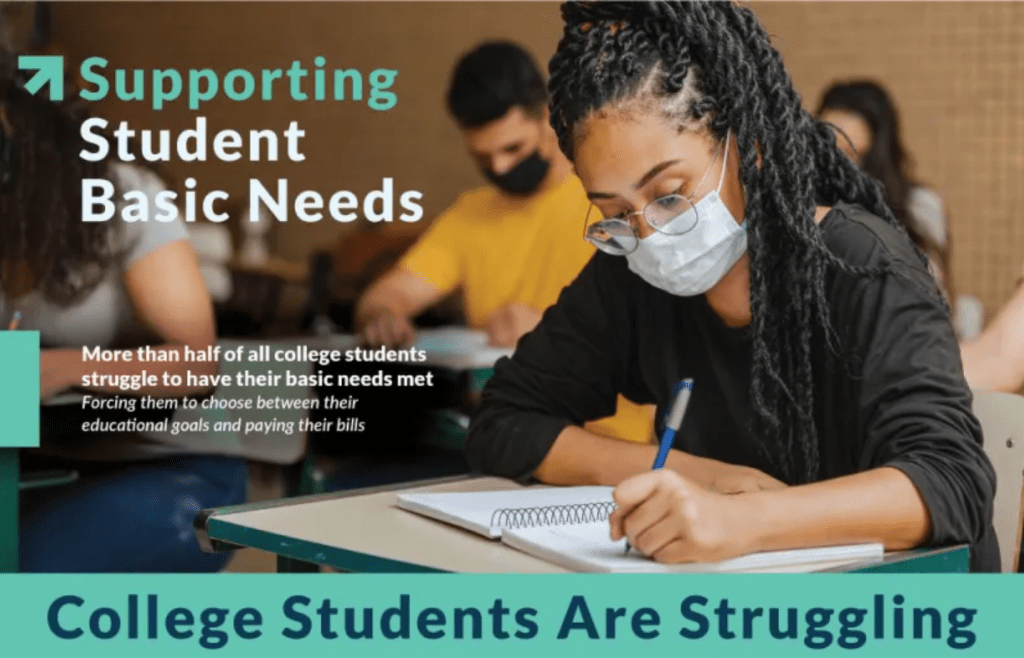
Students across the country experience basic needs insecurity where they lack access to effective sources of food, housing, and other living necessities. As a result, their academic success suffers and could cause them to drop out and not graduate. Colleges don’t make the struggle any easier with their rising tuition rates and decreasing amounts of public funding and financial resources.
Pell Grants are no longer able to cover 80% of tuition costs so many students are taking up multiple jobs or taking out loans to cover college costs outside of their daily living expenses. Low-income students have a higher chance of moving out of poverty if they have a college degree, but many are opting out of college due to challenges they face. Therefore, creating conditions where all students can succeed means understanding the academic and nonacademic barriers especially faced by low-income students.
One of these barriers is accessing support as there are several students who do not know how to use campus support or have any idea they exist at all. However, these students should know that these emergency funds can be used to continue enrollment, pay for everyday needs, and reduce financial stress while increasing chances of graduating.
Therefore, removing the academic and nonacademic barriers students face while helping more students get the basic needs support they need can lead to more students graduating, getting a postsecondary degree, and eventually becoming financially self-sufficient.
